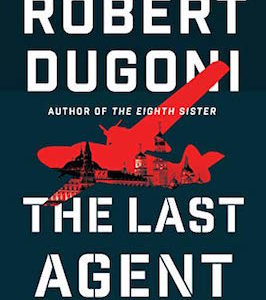As a child, Debora Harding was the victim of a horrible crime, just one of the many traumas that marred her childhood. As an adult, she began to write down her memories in order to make sense of her experiences.
 Shepherdstown, 2002—Thomas and I agreed that while he read my account, I’d take the kids to the Baltimore Aquarium. An hour later, my son, daughter, and I were walking around the underwater kingdom, checking out seahorses, jellyfish, urchins, and sharks. Next we sat in the front row seats for the dolphin show and were soon splashed by their fins as they swooshed by. Listening to my children’s giggles and full-body laughter proved the perfect antidote to my anxious mood.
Shepherdstown, 2002—Thomas and I agreed that while he read my account, I’d take the kids to the Baltimore Aquarium. An hour later, my son, daughter, and I were walking around the underwater kingdom, checking out seahorses, jellyfish, urchins, and sharks. Next we sat in the front row seats for the dolphin show and were soon splashed by their fins as they swooshed by. Listening to my children’s giggles and full-body laughter proved the perfect antidote to my anxious mood.
On our way out, my daughter spotted the one tank I had carefully bypassed. “Come on Momma,” she said clasping my hand, “let’s go see the octopus.” My son was soon joining in, pulling my other arm as I reluctantly let them drag me toward the darkened hall that encaged the gross beast.
In front of the enormous tank, we sat on the coal-black carpet, the kids wrapped themselves around me, as our eyes slowly adjusted to the change in light. There it was, before us. A giant octopus—its sack of a head, its mantel with huge shaded eyes, its flowing dangling legs covered with rubbery oval suckers. It was looking directly at us.
My children stared back, their eyes round with curiosity and awe. Silenced by the magnificence of the monster. I checked my own emotions and found myself split. The parent interpreter who so wanted to get this moment right.
The fourteen-year-old me who was horrified at the violent appearance of the beast. The seven-year-old me who was desperate to transform the image in front of me into Dad’s fantastical pet.
I was saved from my conflicted feelings when an enthusiastic aquarium volunteer walked over. “Do you want to know about her?” she asked. My kids nodded enthusiastically. The volunteer pointed out how the huge octopus was able to change colors, how its texture changed from smooth to corrugated to prickly. She told us how the octopus was as smart as a cat or dog, and just as she was saying that, the octopus pushed up against the glass, and beneath its giant head its tentacles flowed with the water. It appeared to be dancing.
The employee said that the octopus was playing, and sure enough it reached for some plastic orange and green toys bobbing in the water. We watched as it grabbed, one, then two, then three different objects with the tips of its tentacles, waving them around. The kids squealed with delight. And I joined them. It was just so funny.
I felt the inner tension flow out of me, the knot in my heart melted by my children’s joy. By the absurd humor of life.
We must have sat in front of that octopus for twenty minutes, watching it somersault, pulse through the water, play some more, slowly relax. Finally, I suggested to the kids we go get some ice cream before the drive back.
Later at home, after we’d put the children to bed, Thomas and I sat down at our kitchen table with a pot of herbal tea. He told me he was blown away by reading the account, that he knew it must have been hard for me to write these memories down. And then he took a deep breath, let the moment sink in for both us. And continued.
He was shocked at the magnitude of the violence and how little he knew.He was shocked at the magnitude of the violence and how little he knew. Just for a start, he knew I had been abducted at knifepoint, but it hadn’t fully registered that it had been at 4 p.m. in the parking lot of my church and school, and during an ice storm. He knew a ransom had been demanded, but didn’t know there had been police at the house, that the phones had been tapped. He knew I had been dropped off, but he didn’t understand the physical shock I must have been in, that it had been record-breaking freezing temperatures, and it never registered I had been dropped off in the dark. Furthermore, he knew that the crime had been important to my relationship with my father, forged an inseparable bond, and now it explained my unshakable loyalty to him. He also hadn’t known that Mr. K had worn a ski mask and I could only ever see his eyes, and finally, he knew that my perpetrator had been jailed, but the significance of my never having had to appear in court—well, he understood the real power of that now.
He suggested that it might be time to find out what the actual charges were and how many years of the sentence the man had served. Perhaps the knowledge might give me a little more control.
“You mean you believe it all was real?”
“I don’t understand the question.”
“You mean you think I’m remembering it correctly?”
“Of course I do,” he said compassionately.
“I don’t know. None of it feels real . . . There’s something else that keeps bothering me,” I said, blowing the steam across my cup. “After we moved to Laurens I went into my Dad’s dresser drawer to borrow a T-shirt, and as I was flipping through them, I noticed a letter, hidden, and it was addressed to me. The return address was from Lincoln and it had a prison address on it. I felt guilty for discovering it, then guilty as I opened it, and then horrified after I read it. The guy had written me this creepy letter, like we were good friends. He said I’d want to know he had found Jesus and God had forgiven him and then, even sicker, added a sentence where he told me not to smoke cigarettes and to avoid the fast lane. It was so frightening and its contents so gross and disgusting that I put it back in Dad’s drawer.”
Thomas asked if my father ever showed me the letter.
“No. Why would he? I was fifteen years old. Once I read it, I did everything I could for the next couple of days to push it out of my mind. Just filed it in the box labeled, “Dad has it under control.”
“And then there’s the other weird story. Remember Todd, that friend I introduced you to when we came through Nebraska on Bike-Aid? He told me one of my closest friends at junior high had gone on to work in the Nebraska State Prison. Her name was Kim.”
Thomas looked at me blankly. His memory was a running joke in our relationship at the time we met. He was still recovering from the sixteen stitches in his head, after the hit-and-run in Mexico that nearly killed him.
So I recapped the story for him. That Kim had pursued a Criminal Justice degree at the University of Nebraska, in Lincoln, and as part of the degree requirement she had worked in the Community Release Center, where she had unwittingly become friendly with Mr. K. Later she confronted him after discovering his true identity.
It turned into some kind of psychological conversion, as he fell apart and said that he could barely live with himself and he was so glad he had finally been able to face the truth. They paroled him shortly after that. I can’t say I received the story well. I didn’t want to hear anything about this man. And I appreciated the position Kim had been put in, which sounded horrific, but it felt like hearing there had been a reconciliation process conducted on my behalf. Yet I wouldn’t have wanted her to respond any other way. It was a bizarre occurrence.
After I finished telling Thomas the story, he was more adamant about finding out where the guy was, where he lived. He assured me that as a victim, it was my right to know. And then asked me to trust him, that finding the information was a good thing.
“I don’t know his name,” I said, and added with anxious dread, “We’d have to call my parents.”
“Believe me, Deb. They are going to want to help you with this. We can at least find out the charges.” I wasn’t as sure as he was, but I reluctantly agreed. Of course they’d be helpful.
He dialed. I heard him ask Mom if he could talk to Jim. I could tell she was saying he wasn’t available. Thomas put the phone on loudspeaker, explained why he was calling, said it in a way that didn’t give too much of my emotional privacy away—just told her I was having a difficult time, and he was curious, did she happen to know what the guy who kidnapped me was charged with?
“Debora wasn’t kidnapped,” my mother said matter-of-factly. “But the man was charged with rape.” It felt like a full-body sucker punch. The confidence that Thomas had just filled me with evaporated. Thomas asked her again if she knew what the man had been charged with? What the sentence had been? She said no, she didn’t remember the charges.
I knew I had been right in my instinct not to make the call. Thomas told her it was okay, he could get the information from the FBI if she remembered the perpetrator’s name. She asked why the FBI would have the information. The man hadn’t been serious about collecting the money. He never showed up.
Thomas sidestepped the argument and asked her again if she knew the name of the man who kidnapped me. She said, oh, yes, she’d never forget that. His name was Goodwin. Charles Goodwin.
Thomas hung up the phone, flabbergasted. “I can’t believe that conversation,” he said.
I had always been thankful that everything I told the police as a fourteen- year-old girl had been believed, and never more so now. I stood silent, so crushed inside I was afraid to speak. Thomas began to think out loud. “It’s not the facts that are bothering me. It’s her emotional reaction, or lack of it. It’s just wrong. I’m so sorry.” He was saying it like it was my whole childhood he was sick about. “I want to vomit,” he said, talking more to himself than to me. And then he came over and hugged me. I felt the tears, in fact, my face was wet with them, but I was afraid if I opened my mouth, if I sobbed, I would go to pieces.
“Deb, do you understand this is no longer just about Charles Goodwin? This is now also about your parents?”
“We should just leave it,” I said. I was feeling scarily disconnected from anything real. This had started so we could allow my delusional mind to rest, by reassuring me this man was not anywhere near me. And now, after six months of vacation—Mom was back in my head again.
I had always thought my police statement was irrefutable because it was backed up by evidence. And it was because of that, I never had to go to trial. But now, my mother suggested Mr. K was never charged for kidnapping. I felt sick at the thought this man never served time for the terror he had inflicted on my father, on my family when he threatened my life, for the threat he had made me witness in that phone booth. He was lucky there was no charge filed for attempted murder.
And yet, surprisingly, I realized that I did want to know. I wanted to know if he had been sentenced for kidnapping, and that my work that night with the police had been helpful. I told Thomas I’d appreciate it if he could contact the FBI.
He suggested I try to get some sleep while he made the call.
_____________________________________

















